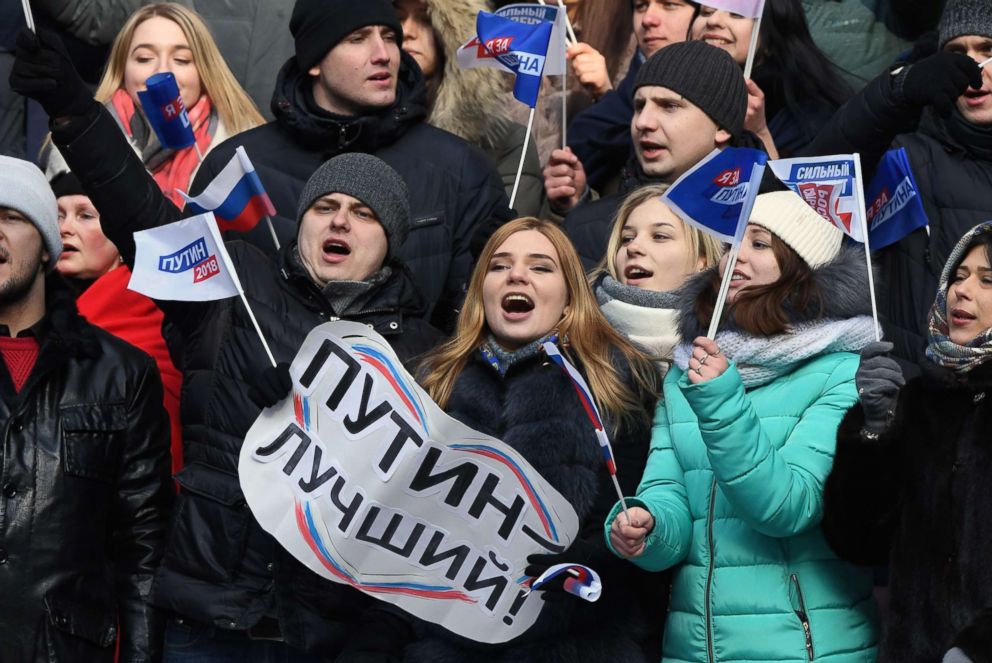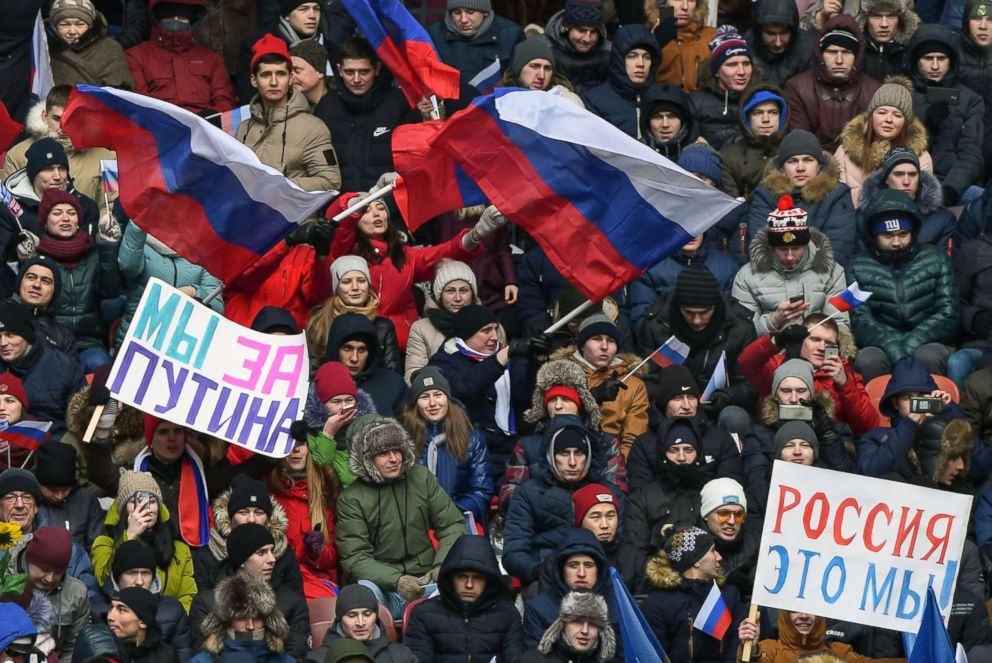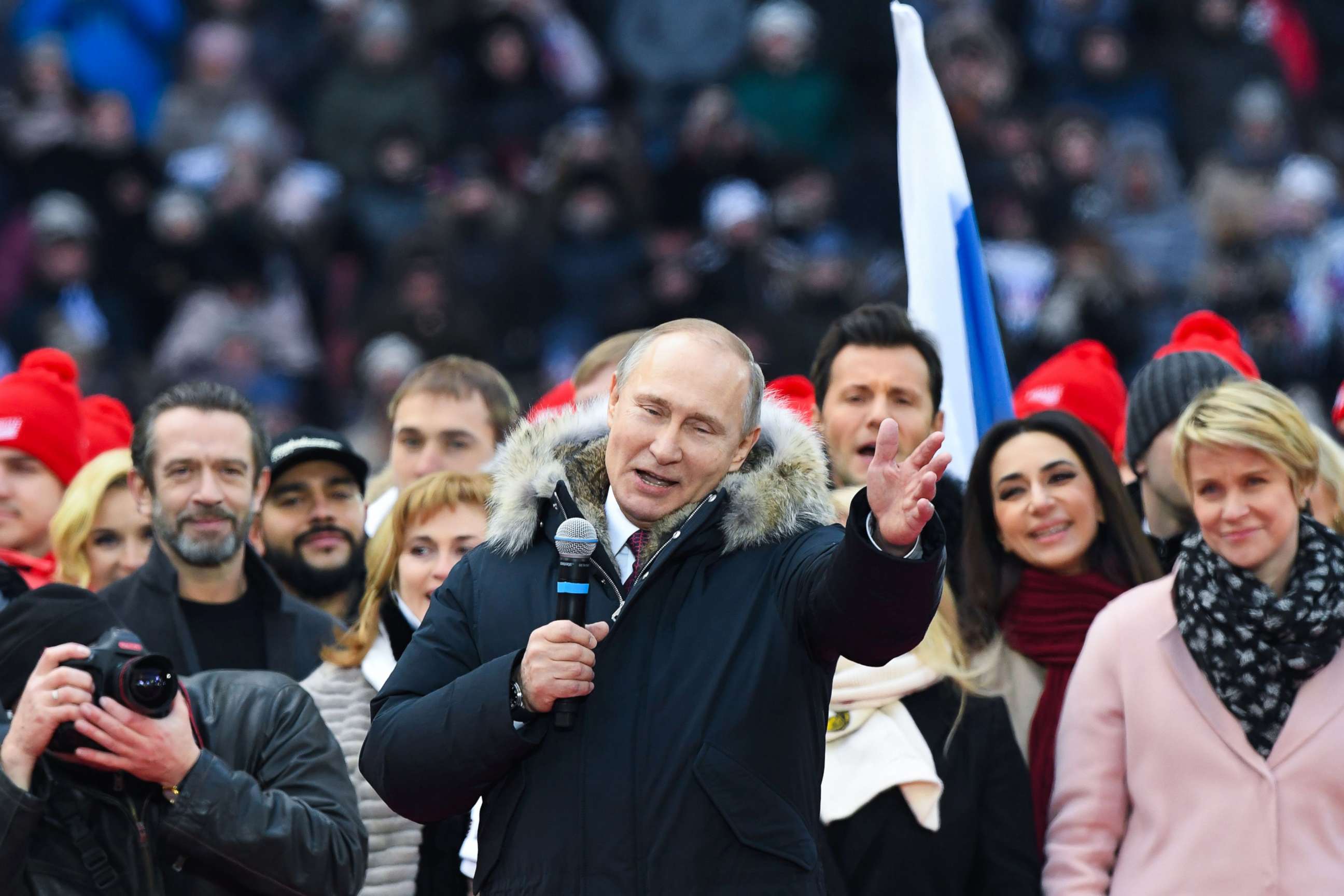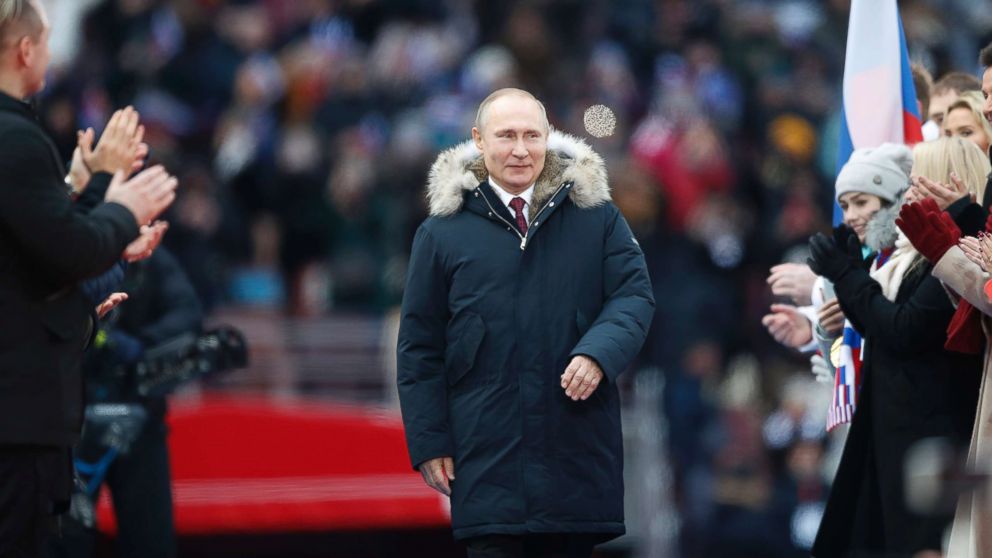Putin rally draws tens of thousands of supporters ahead of presidential election
Moscow -- Vladimir Putin addressed tens of thousands of supporters at a concert venue in Moscow Saturday, a political rally held two weeks before a presidential election in which he faces virtually no opposition.
To chants of "Russia! Russia!" the president addressed the crowd in the capital's central Luzhniki stadium for the concert event, which blended modern Russian pop music culture with Soviet-style mobilization. The stadium, which has a capacity of 81,000, was packed, and police estimated the total crowd -- which spilled outside of the venue -- to be 130,000.

It was an unusually large effort by authorities to show Putin’s support, a vast jamboree promoting the Russian leader in a race where even his opponents say they have no chance of winning. A lineup of Russia’s best-known musicians had been called up to accompany Putin, who arrived midway through, and sang the national anthem with Russia’s gold-winning Olympic hockey team.
“I'd like to greet not just those who are in central Moscow today but all our supporters across all of the huge territory of this country. And there are lots of people -- hundreds, thousands, millions of people!" Putin told the crowd. "We feel so close to them that we feel their breath and bones. Because together we are a team!”
The rally was virtually the only one of its kind in the election so far. Eighteen years in power, Putin has overwhelming control over Russia’s media and its political scene, where his opponents are frequently harassed and events like Saturday's are unimaginable.
The vote on March 18 is, therefore, viewed as a formality.
With the results considered inevitable, the election campaign has struggled to hold Russians’ interest. Six candidates have been permitted onto the ballot, among them perennial challengers who have repeatedly lost to Putin, as well as a billionaire Communist and a celebrity journalist who is the daughter of Putin’s political mentor.
Putin’s most troublesome challenger, the anti-corruption campaigner, Alexey Navalny, has been kept off the ballot by a fraud conviction. Navalny ran his own "presidential campaign" last year, staging rallies across Russia, which in some places drew crowds of a few thousand. Authorities frequently disrupt opposition events, arresting their organizers.

There was little indication Putin needed the rally to drum up support. Russia’s main federal pollster last week found 63 percent would vote for him; his nearest rival, the far-right nationalist Vladimir Zhirinovsky, who is a vehement supporter of Putin, is at 7 percent.
The Kremlin is determined to use the election as a show of Putin's support and is focused on maximizing turnout.
Some of Russia’s most popular music stars performed, among them the rapper Timati. At the rally, organizers set up a huge music stage outside the stadium, and served food and free tea.
But behind all of the flag-waving, there were signs supporters were less enthusiastic than they appeared. One man said his bosses made him go.
“My employers forced me to come. They said they’d fire me,” the man, Andrey, told ABC News.
“Ninety percent of people here were forced to come by their employer; otherwise people just wouldn’t have come, no way,” Andrey, who only gave his first name for fear of repercussions, added.
Having state enterprises push their workers to government rallies was a common practice in the Soviet Union days, and one that has continued into present-day Russia; during the last presidential campaign in 2012, reporters witnessed groups of volunteers handing out flags and cash ahead of a Putin rally.
Andrey said employers didn’t necessarily threaten people, but made it clear that attendance was expected. It was like in Communist times, he said, “obligatorily voluntary.”
On Saturday, many of the people present belonged to local organizations or arrived in large groups. Many seemed to be enjoying themselves, but large numbers dispersed quickly after Putin spoke. Large groups of young students were present, insisting they had come on their own -- though they were mostly unable to say why they supported Putin.
Others said they had come to watch the concert.
That many of those present appeared to have been encouraged or even forced to attend did not mean they didn’t still support Putin, who is genuinely popular.

A group of students from the Moscow region who were wrapped in Russian flags said they had come on their own, adding that they weren’t sure the election was even necessary.
“Why can’t they just make Putin president now?” another student said. “That would be better.”




